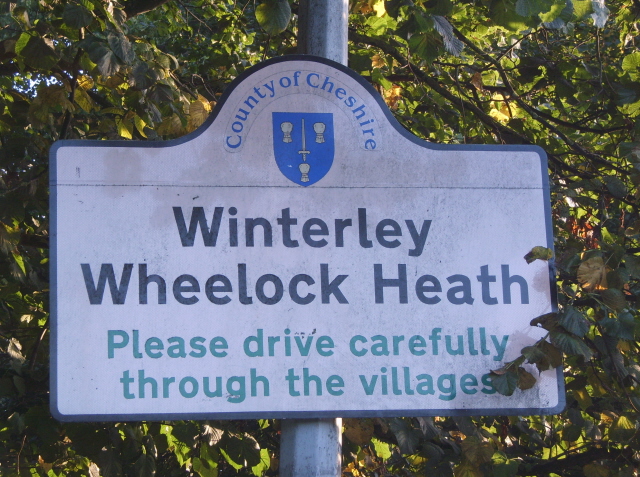A new project fosters relationships between churches in rural areas of Great Britain. This large mission field needs passionate leaders and long-term commitment, says Tim Wilson.
![Thousands of villages and towns in rural Britain have their own characteristics. / Photo: [link]Silviya Nenova[/link], Unsplash, CC0.](https://cms.evangelicalfocus.com/upload/imagenes/64118c7a4dd16_silviya-nenova-qONjI6nlu5Y-unsplashCropped.jpg) Thousands of villages and towns in rural Britain have their own characteristics. / Photo: [link]Silviya Nenova[/link], Unsplash, CC0.
Thousands of villages and towns in rural Britain have their own characteristics. / Photo: [link]Silviya Nenova[/link], Unsplash, CC0.
A movement of people passionate about churches in rural regions is gaining traction in Great Britain.
The Rural Project is having its first online prayer meeting between Christians who have a heart for gospel work in villages. And everything is coming together for an in-person conference in which those who share this common mission field across Britain meet to build relationships and learn from each other.
Tim Wilson is part of the group steering the first steps of the project. He is a pastor of a Baptist church in Winterley, a village of around 1,000 inhabitants in the North West of England.
Responding to Evangelical Focus, Wilson spoke about the defining features of mission in rural settings, the “jack-of-all-trades” type of leadership needed, and the opportunities the internet offers in connecting small, isolated churches.

[photo_footer]Tim Wilson pastors a church in the village of Winterley and is a member of The Rural Project team. [/photo_footer]
Question. When was The Rural Project started and why?
Answer. Rob Scothern is a pastor at Peak Trinity Church in Bakewell. Through various networks, he heard of fantastic urban partnerships to spread the gospel. As encouraged as he was, he felt that his church was an outlier. Where was the gospel partnership for rural areas? During 2020 when zoom prayer meetings became more normal, he wondered if this technology could be used to connect rural churches in partnership.
As it happened, the Fellowship of Independent Evangelical Churches (which Rob was a part of) were celebrating their 100 year anniversary by praying for 100 gospel projects across the UK. They put out a call for churches to suggest projects that could be supported. Rob had the idea of “The Rural Project” a network of rural churches to come together. He got in touch with a few church leaders he knew from similar backgrounds.
I entered the story when I wrote a piece for the Gospel Coalition about my experience pastoring in a village. Rob read the article, got in touch and we met up for lunch and he shared his vision. In November 2022, we had our first meeting. We agreed the vision and began to share it with others we knew. The reception has been overwhelmingly positive.
This is what we're all about
pic.twitter.com/xsAfxWltJU
— The Rural Project (@TheRuralProject) March 10, 2023
Q. At what stage are you at the moment?
A. It’s still very early doors! We have around 47 church leaders who have expressed an interest so far. Our first prayer meeting was on 15th March 2023 and our first conference is 29th-30th September. This will develop into a training cohort via Crosslands Seminary and hopefully into rural apprenticeships as well.
Q. Media and social media often only show what happens in the cities. Is this lack of visibility of rural realities also real in Christian ministry contexts (books, seminaries, public conversations)?
A. I think it does. There are some aspects of that which are natural consequences. For example, most seminaries are in the city as are most churches offering apprenticeship positions. It therefore becomes inevitable that urban realities shape our training of future leaders. Moreover, leaders of larger urban churches have more name recognition which leads to them being the dominant voice in conferences, preaching etc. I wouldn’t want to give the impression that this is some great conspiracy and we’ve benefitted much from urban pastors. However, it can easily be the case that rural wisdom is cut out as a result.
[destacate]“Our hope is that pastors and Christians will happily spend their lives in smaller communities for the good of the gospel, even if it may seem counterintuitive”[/destacate]I think social media gives an opportunity to reverse that trend. In a previous generation, there was a financial barrier to getting a message out. With social media, everyone can get a message out for free. While this has led to some problems for society, it can be used for good too! We’re hoping that we can use internet resources to gather wisdom from rural leaders that can support rural churches.Q. How do you describe the character and skills needed for someone getting involved in evangelism and church planting in rural contexts?
A. Obviously the most important character and skills are those that apply anywhere. You need to have the qualifications listed in 1 Timothy 3 or Titus. You need to preach the gospel and be prayerful. You need to live a life of evident godliness. 90% of the work is that.
In terms of the unique skills, four would stand out to me. The first is patience. Patience is key to any ministry, but perhaps especially so in a village. It will take much longer before you see your first convert or your church growing. You won’t have the population turnover of a city centre, which may lead to the excitement of seeing Christians come in to help the work. If you evaluate on the basis of a year, you will be pretty discouraged. But if you stick with it in the long-term, you will see fruit.
[destacate]“Patience is key to any ministry, but perhaps especially so in a village. If you stick with it in the long-term, you will see fruit”[/destacate]The second aspect is the ability to evangelise in a relational way. In a city there’s a pretty good chance you won’t know your next-door neighbour. That isn’t the case in a village. In this way, building relationships is vital. Sometimes it may take years for those relationships to bear fruit, but (see the last point) you can do this.Thirdly, you’ll need to be what British people call a “jack-of-all-trades” – that is someone who is able to decent job at lots of tasks. In a bigger church, specialism is natural. You may have a youth worker, a kids worker, a student worker and so on. They can focus on doing one job really well. In a rural context, you may be preaching one day, doing a school assembly the next and counselling a non-Christian the day after. A leader who feels only called to one specific ministry may struggle.
Finally, you need to be someone who is skilled at evangelistic listening. You need to speak to people in your community and listen to them. What are their big objections to the gospel? What are their hopes and dreams? What will make them walk through the door of the church? Frequently, this will lead to different practices. You can’t necessarily copy and paste what is done by a big city church to your community. But if you know your community well, you can become the perfect person to speak to that community.

[photo_footer] Churches in villages need to understand the rhythm of life in the rural context. / Photo: Wikipedia, CC[/photo_footer] Q. A first Rural Project conference is happening in September. “Inspiration and equipping” are among your aims. How do you apply these to church workers in towns and villages who often feel lonely and isolated?
A. Well, this year is our first conference, so it’s a plan rather than something we’ve achieved yet! Here’s what the plan is.
Firstly, we’re keen that this doesn’t become another pastor-only event. Many rural churches are run by volunteers and haven’t the finances for paid staff. Even if there is paid staff, much of the hard work is down to the hard work of volunteers in a variety of ministries. We’re hosting the event over a weekend to make it easier for people like this to attend. That hopefully means the inspiration and equipping will spread through the congregation.
Secondly, all our speakers will be from a rural context. They may not have a huge church or a dozen books to their name. But what they do have is experience in a rural setting. They will know the temptations and challenges of rural Christians that need gospel encouragement. When giving practical advice, they won’t be assuming an unrealistic team size or budget. This will hopefully lead to isolated people feeling included.
[destacate]“Leaders of larger urban churches have more name recognition which leads to them being the dominant voice in conferences and preaching”[/destacate]Finally, we’re making lots of room for building relationships. The Friday night will be a meal and a chance to meet people. The Saturday will include most of the content but still generous time to meet others. For those who stay for the Sunday, there will be a chance to worship in a thriving rural church plant. Our hope is this will give isolated people a chance to be encouraged by others in the same boat.The other element is we don’t want to limit this to once a year. We’re hosting termly prayer times online and an online training course that means those isolated people can begin to build relationships with other across the country.

[photo_footer] The Rural Project. [/photo_footer] Q. What have you as a movement learned from previous generations of church workers in rural areas of the UK?
A. Personally, I have found in previous generations plenty of encouragement for rural ministries.
In my own Baptist background, there was a fascinating commitment to stay in a village even when the bright lights of the cities attracted. 18th Century pastor Benjamin Beddome was once offered to leave his village for a ministry in London. He was advised that he would have greater usefulness in the capital. He replied, “If the prospect of greater usefulness is in itself a sufficient plea for the removal which you press, then it would be impossible for churches of a lower rank ever to be secure of the continuance of their pastors.” His point was that if rural pastors are constantly leaving to cities, who will be left to pastor the villages? He therefore devoted himself to his village.
Beddome was not unusual in that commitment. There is no shame in going to a city. However, our hope is that pastors and Christians will happily spend their lives in smaller communities for the good of the gospel, even if it may seem counterintuitive to the world.
Another element that inspires me from former generations is their commitment to reach beyond their own church. Matthew Henry preached the ordination sermon for the first pastor of my own church in 1706. He was based in the county town of Chester but he saw the importance of preaching appointments in the region as a whole to begin new works. This eventually led to a church being formed in our village which exists to this day. Similar activities were undertaken by the Methodists in earlier generations. It would be great if we could recapture that vision of going from village to village.
Q. Do you have connections with similar projects in Europe? What would you like to see on a continental level?
A. We’re just getting started so the focus is currently British. I’m sure there are continental connections and wisdom we could benefit from. If anyone is interested to get in touch we’d suggest connecting via this link.
[destacate]“Let’s commit like Jesus did to spreading the gospel to every town and village of our nations”[/destacate]What would be good to see on a continental level? First and foremost a commitment. It is often said that evangelism should happen first in the town and cities and then spread out to the surrounding areas. Well and good. But that won’t happen by accident! Let’s commit like Jesus did to spreading the gospel to every town and village of our nations. When people share that commitment wisdom in how to do that can helpfully be shared so we can learn from one another.
Las opiniones vertidas por nuestros colaboradores se realizan a nivel personal, pudiendo coincidir o no con la postura de la dirección de Protestante Digital.
Si quieres comentar o